
If you’re looking for a FaunaDB alternative to migrate to, then you’re in the right place. This article will cover nine other platforms you can use and factors to consider when choosing an alternative:

The FaunaDB team announced that they are shutting down their services on May 30, 2025. You can explore the end of Life FAQ to learn more. This means their customers, which consist of 80,000+ development teams in over 180 countries, have to find a new database solution to work with.
Each section in this post will run through the following:
Before we proceed, here’s a comparison table that summarizes how these platforms stack up against each other:
| Platform | Pricing | Type of Database | Data Model | Query Language |
|---|---|---|---|---|
| Convex | Free tier, paid starts at $25/member/month | Serverless DB | Document, Real-Time, AI | ❌ |
| MongoDB Atlas | Forever free plan, paid from $0.08/hr | NoSQL | Document | MQL (MongoDB Query Language) |
| PlanetScale | Paid plans start at $39/month | Distributed SQL | Relational, SQL | SQL |
| CockroachDB | Free plan, paid starts at $0.18/hr | Distributed SQL | Relational, SQL | SQL |
| TiDB | Serverless from $0, paid starts at $0.44/hr | Distributed SQL | Relational, NoSQL | SQL |
| OceanBase | Paid plans start at $1.10/hr | Distributed SQL | Relational, SQL | SQL |
| Supabase | Free plan, paid plans from $25/month | Relational (PostgreSQL) | Relational, Document | SQL (PostgreSQL) |
| Couchbase | Free plan, paid plans start from $0.15/hr | NoSQL | Document, Key-Value, Graph | SQL++ (SQL for JSON) |
| SurrealDB | Free plan, paid plans start from $23/month | Multi-model | Document, Graph, Time-series, Relational | SurrealQL |
The Replay is a weekly newsletter for dev and engineering leaders.
Delivered once a week, it's your curated guide to the most important conversations around frontend dev, emerging AI tools, and the state of modern software.
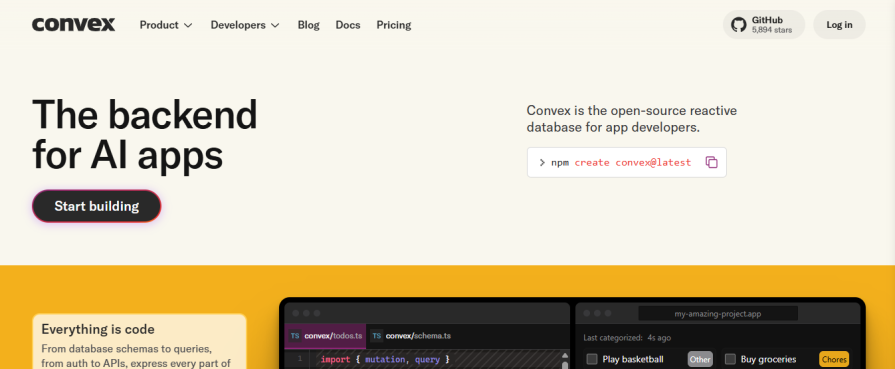
Convex is a reactive database built for developers like you who want to focus on building great applications without the hassle of managing backend infrastructure. It streamlines backend operations and offers real-time data synchronization, built-in authentication, and AI integration.
With Convex, you can quickly develop scalable and high-performance applications, leaving the complexity of managing data and backend operations to the platform.
Convex has a free tier. Its paid plan starts from $25/member/month. There’s also a pricing calculator for estimating your monthly bill.
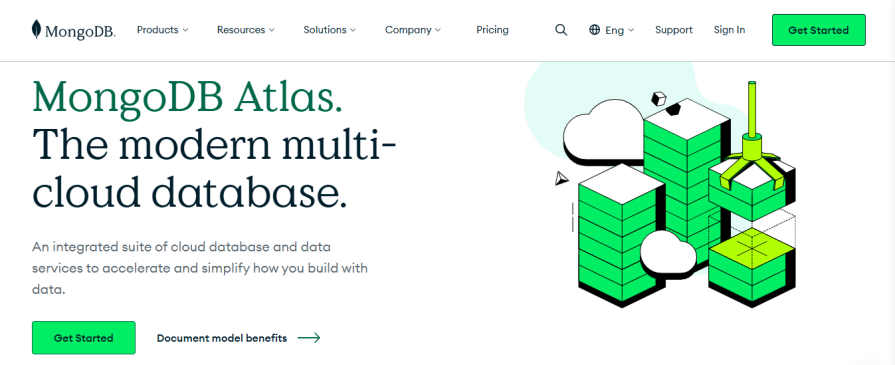 MongoDB Atlas is the fully managed cloud version of MongoDB. It provides a powerful, flexible NoSQL database solution for handling large amounts of unstructured data.
MongoDB Atlas is the fully managed cloud version of MongoDB. It provides a powerful, flexible NoSQL database solution for handling large amounts of unstructured data.
MongoDB Atlas offers a multi-cloud environment and integrates seamlessly with various cloud platforms, allowing you to deploy and scale your database with ease.
MongoDB Atlas has a forever-free plan. Its paid plans start at $0.08/hr.
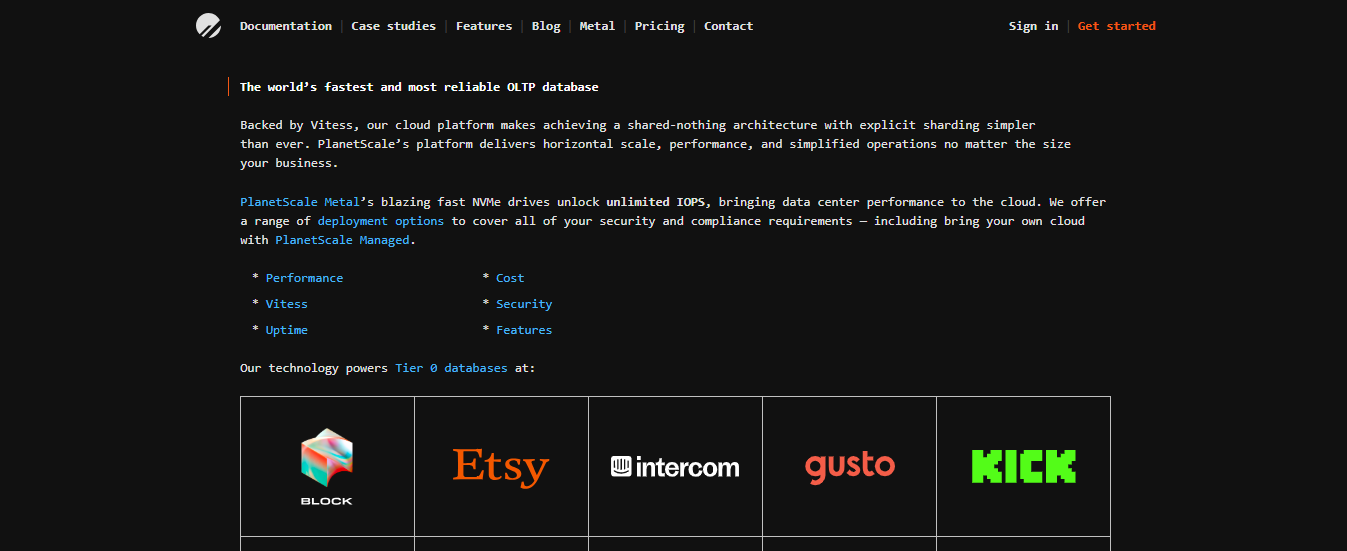
PlanetScale is a distributed, serverless MySQL-compatible database built to handle the demands of modern applications. This platform, built on top of Vitess, is used by many medium and large-scale companies.
Planetscale doesn’t offer a free tier, as they removed their hobby plan on March 6, 2024. Their paid plan starts at $39/month.
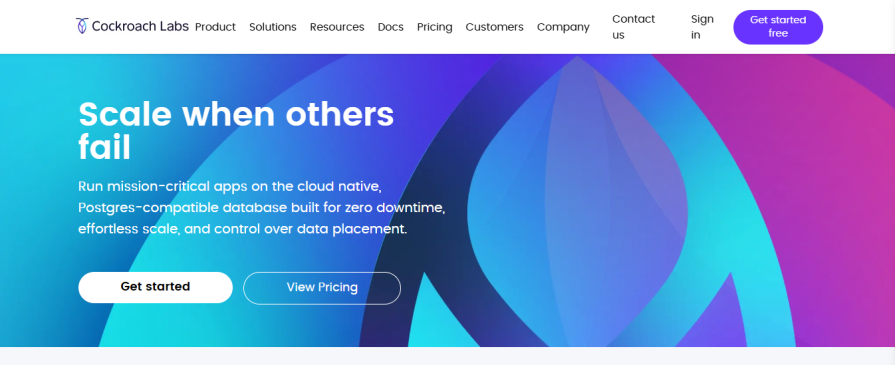 CockroachDB is a distributed SQL database designed for modern applications. It offers high scalability, resilience, and ease of use. It automatically handles replication and scaling, ensuring your data is always available, even in the face of failures.
CockroachDB is a distributed SQL database designed for modern applications. It offers high scalability, resilience, and ease of use. It automatically handles replication and scaling, ensuring your data is always available, even in the face of failures.
CockroachDB offers a free plan, and its paid plan starts at $0.18/hr for 2 vCPUs.
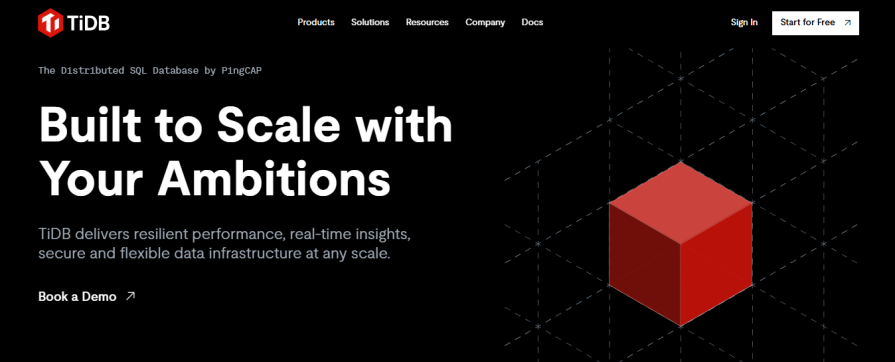 TiDB by PingCAP is a distributed SQL database that allows you to easily handle transactional and analytical workloads. It combines the best aspects of relational databases and NoSQL systems, offering high availability, scalability, and strong consistency.
TiDB by PingCAP is a distributed SQL database that allows you to easily handle transactional and analytical workloads. It combines the best aspects of relational databases and NoSQL systems, offering high availability, scalability, and strong consistency.
TiDB offers cloud-serverless, cloud-dedicated, and self-managed environments, allowing you to work with your preferred option.
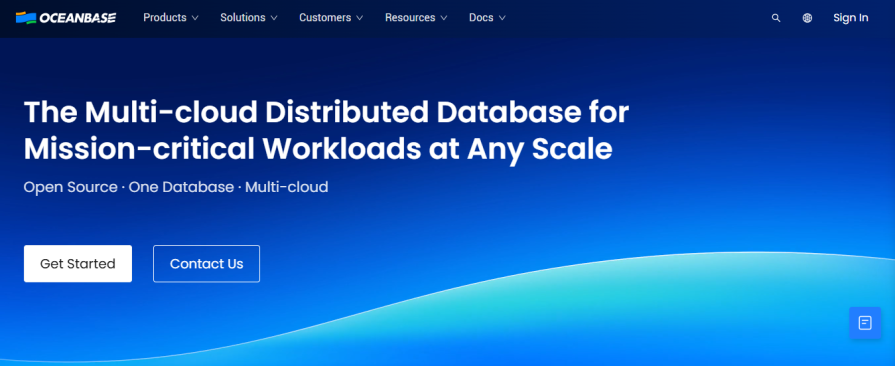
OceanBase is yet another distributed SQL database designed to handle large-scale, mission-critical workloads. It was developed by Ant Group and Alibaba Group in 2010, and is used by businesses of all sizes.
Features
Pricing
Plans start at $1.10/hr for 8C32G (2 vCPUs) instances. This includes compute and storage costs.
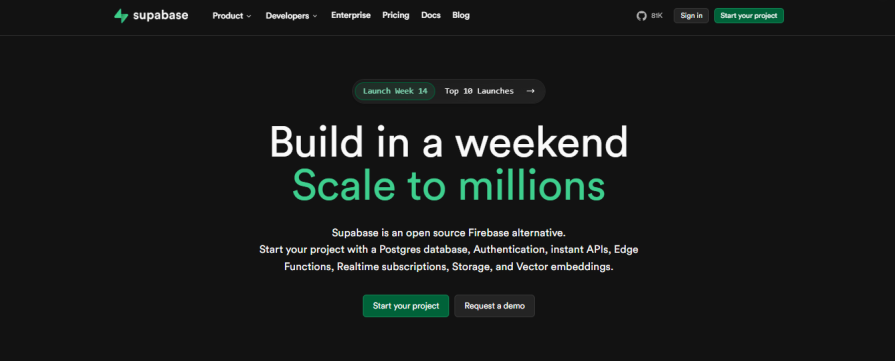
Supabase positions itself as “the open-source Firebase” alternative. It provides a set of powerful backend services that are easy to integrate, allowing you to quickly build applications using PostgreSQL as your database.
Superbase offers a free plan. Its paid plans start at $25/month.
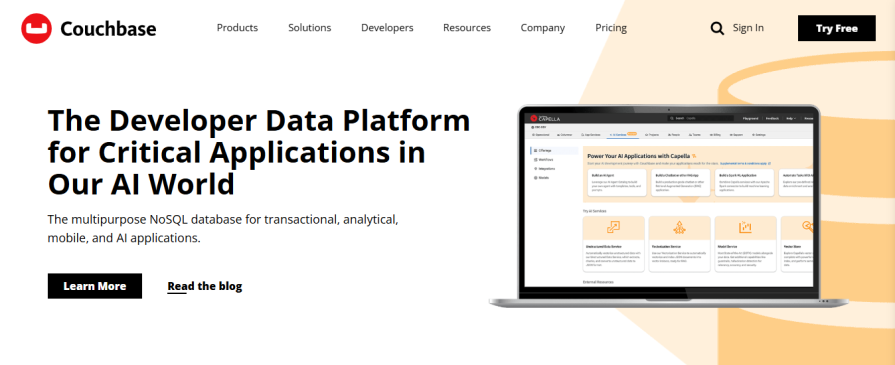
Couchbase is a NoSQL database platform designed to handle diverse data storage and retrieval needs. It supports a variety of use cases, from cloud to edge applications, and integrates seamlessly with mobile and IoT environments
Couchbase Capella has a free plan, and its paid plans start from $0.15/hr per node. Pricing details for Couchbase Server and Mobile are available on request.
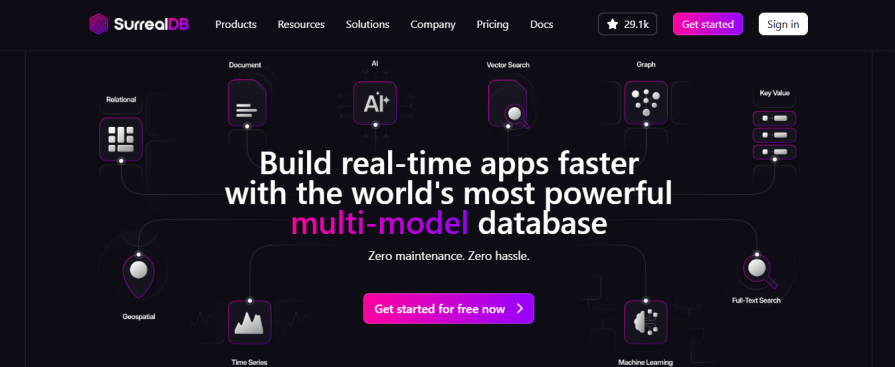
SurrealDB is a multi-model database that allows you to store and manage data in various formats, including document, graph, time-series, and relational models—all within a single, unified platform.
This flexibility means you can handle diverse data types and complex relationships without having to use multiple databases.
SurrealDB has a free plan, and its paid plans start from $23/month.
Here are some key considerations when selecting an alternative solution to FaunaDB:
When choosing a database alternative, it’s crucial to consider the data model and confirm it can meet your application’s needs. Here are some data models you can choose from:
When choosing a database alternative, the query language and overall developer experience should be a primary consideration. The ease of use, flexibility, and learning curve of the query language can significantly impact your speed and productivity.
When moving from FaunaDB to another platform, migration ease is a key factor:
In this article, we’ve covered nine FaunaDB alternatives, each with unique features. However, this is by no means an exhaustive list. Many other database solutions are available that might suit your needs.
As you evaluate your options, consider factors like data models, query languages, scalability, pricing, and support to ensure the best fit for your application.
Switching from FaunaDB is not just an option, but a necessity, as its services officially ended on May 30, 2025. Existing customers must start exploring alternatives as soon as possible to ensure a smooth transition and uninterrupted service.

Explore how the Universal Commerce Protocol (UCP) allows AI agents to connect with merchants, handle checkout sessions, and securely process payments in real-world e-commerce flows.

React Server Components and the Next.js App Router enable streaming and smaller client bundles, but only when used correctly. This article explores six common mistakes that block streaming, bloat hydration, and create stale UI in production.

Gil Fink (SparXis CEO) joins PodRocket to break down today’s most common web rendering patterns: SSR, CSR, static rednering, and islands/resumability.

@container scroll-state: Replace JS scroll listeners nowCSS @container scroll-state lets you build sticky headers, snapping carousels, and scroll indicators without JavaScript. Here’s how to replace scroll listeners with clean, declarative state queries.
Hey there, want to help make our blog better?
Join LogRocket’s Content Advisory Board. You’ll help inform the type of content we create and get access to exclusive meetups, social accreditation, and swag.
Sign up now